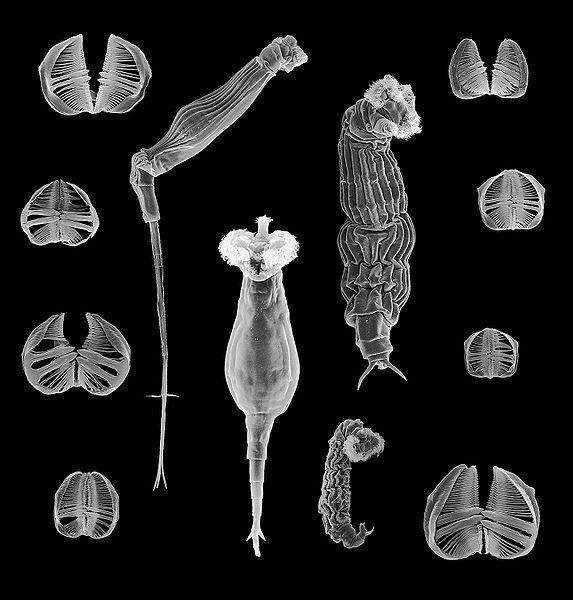Superhero Tiny Creature Obtains Powers by…Eating DNA

Asexuality is considered to be a death knell for species. In general, once a species flirts with asexuality, it becomes extinct, unable to adapt to changing circumstances. That is why scientists are amused and confounded by bdelloid rotifers. These tiny microbial organisms can survive a pumping of radiation and from drying out without water. Even more amazingly, bdelloids have been able to survive for tens of millions of years without having sex.
The all-female creatures are believed to have existed for 80 million years without having sex, diversifying into at least 400 different species. That ability to acquire DNA from other species is believed to be responsible for their handy adaptation and survival, especially their ability to live after the destruction of their naturally aquatic habitats. The record amount of time that bdelloids were able to survive outside of their habitats was nine years!
Alan Tunnacliffe, a professor at the University of Cambridge and the lead author of the study published in PLoS Genetics, said to LiveScience that this discovery added another level of "weirdness of an already odd little creature. We don't know how the gene transfer occurs, but it almost certainly involves ingesting DNA in organic debris, which their environments are full of...Bdelloids will eat anything smaller than their heads!"
Previous research has found that bdelloids contain DNA from other organisms, but this study has been the first to find how extensive that borrowing was. The study found that bdelloids pilfered as much as 10 percent of their DNA from other species, like fungi, bacteria, and plants. The animal has adopted DNA from over 500 other species.
The animals' success might be credited to its ability to repair DNA, which exists thanks to the evolution of a duplicate set of genes.
Researchers are still unaware as to how bdelloids acquire the abilities encoded in foreign DNA, but they believe that the process helps bdelloids overcome the genetic disadvantages of asexuality.
"We have a joke in the lab that every time you investigate these animals ... they come out with something weird," Tunnacliffe said to Science. "It's like they're here to keep us entertained and surprised."



























